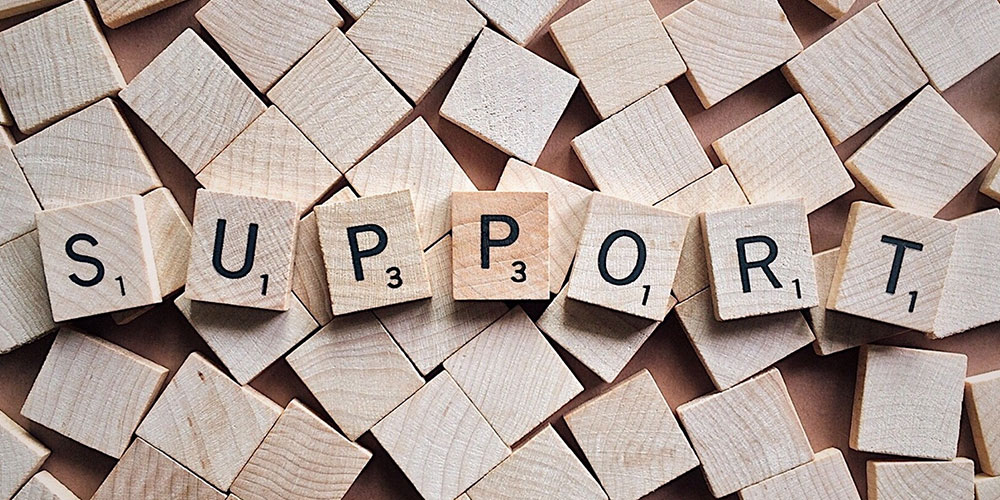I used to think that after the death of a loved one, the best way to cope was to talk about it, cry a little, share memories, maybe laugh a little and just keep going through life. This may be my way of coping after a death, it is not everyone’s way, nor should it be. As Chaplain providing grief support with Bakken-Young Funeral & Cremation Services, I have learned that each person has their own way and their own path, and though there may be similar characteristics, the resources and tools we use to help us through grief, can and will be unique for each of us, and we are all fairly resilient and will find a way to live with that death, moving forward in life.
How we experience our grief and express it, can be different and unique to each of us. There is no checklist through grief, i.e. once you cry no more tears will come, or in a year you are finished grieving. Humans and relationships are not this way. If you risk loving, you risk grieving. What is common, is that we take the time to acknowledge our grief, and to pay attention to it.
Sadness is common in grief and has a purpose. It invites us to give attention to something within us, almost like a forced time out. In addition to sadness though, we can also find joy and laughter at times. Laughter is not the absence of grief, it is a purposeful way of healing and living in grief. In his book: The Other Side of Sadness: What the New Science of Bereavement Tells Us About Life After Loss, George A. Bonanno, Professor of Clinical Psychology and Chair of the Department of Counseling and Clinical Psychology at Columbia University’s Teacher’s College, provides research which has shown that bereavement is not all sad and gloomy. Though sadness is a big part of grief, bereaved people can find joy and pleasure in life, even in the earlier days of the loss. Being able to laugh does not mean we are denying or avoiding our grief, instead it suggests that we are taking a break from the sadness of the grief, to try to keep living, even in the midst of deep sadness and pain.
Not only are positive experiences common, but they also tend to have an
affirmative impact on other people and may actually help the bereaved
recover more quickly after the loss. Resilience doesn’t mean, of course,
that everyone fully resolves a loss, or finds a state of “closure.” Even the
most resilient seem to hold on to at least a bit of wistful sadness. But we
are able to keep on living our lives and loving those still present around us.
Bonnano’s research suggests that we are fairly resilient and that for most of us, grief is not overwhelming or unending. In reaching out to the bereaved, I have found this statement to be true. Though there may be shock and hurt from a death, we eventually manage to regain our equilibrium and continue moving on, integrating that death into our lives and living with it as we move forward in life. In conversation after conversation with the bereaved, I often hear: I don’t need anything, I don’t need a group. I can handle this “grief stuff”, but thank you.
Many who suffer from difficult losses, also exhibit a natural resilience. Though they hurt deeply, they will again begin functioning, integrating that death and its meaning, into their lives. This does not negate the reality that some deaths are so painful and distressing, that we could benefit from someone to be a lifejacket through the stormy waters and loneliness of grief. When life is shattered by the death of someone we love, a little help to hold on to the pieces, can make a difference in our lives. Reaching out for counseling, participating in a group, reading books, journaling, spirituality, are some resources to assist us in coping with a death.
In the grief group the bereaved seek answers to questions like, “Why do I feel this way? Is it ok to feel this way, to think this way?” Some seek relief from the gut wrenching heart ache. Being with others walking in similar shoes can be helpful in continuing to move forward. It can also help to simply get out of the house. Most often, being part of a group can provide information, some intentional time with your grief, affirmation by others, and the support that you are not alone.
Bakken-Young Funeral & Cremation Services provides a six-week grief support group. For one hour each week, we offer the opportunity for learning and sharing in a safe environment. In our sessions we discuss the person who died, how grief affects us, recognizing and acknowledging other losses, taking care of ourselves, and other topics. This group is about support for you, and about providing an opportunity for you to be with your thoughts, feelings, and reactions in a safe space. It is also about providing information and tools to help you on your own grief journey.
Two groups are offered each spring and fall, one is usually held in New Richmond, and is currently in progress, while the other is held in River Falls, and begins Tuesdays, Oct. 17, 24 (no grp Oct 31) Nov. 7, 14, 21, 28, 2017. The group is held at St. Bridget Catholic Church, 211 East Division Street, River Falls, WI 54022.
You can find this information and other support on our web site: www.bakken-young.com or join us on facebook www.facebook.com/bakkenyoung.
Source: Bonanno, George, A., The Other Side of Sadness: What the New Science of
Bereavement Tells Us About Life After Loss, Basic Books, A Member of the
Perseus Books Group, New York, New York, 2009.


Add Comment